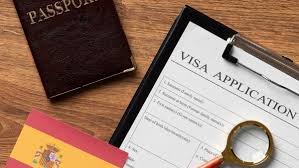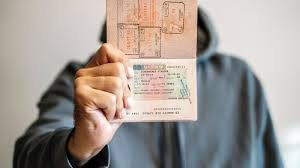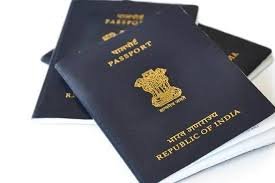Understanding the Indian Visa Process for British and UK Citizens
India is a popular destination for travelers from all over the world, including the United Kingdom. Whether you’re visiting for tourism, business, medical treatment, or study, obtaining the appropriate visa is a critical first step. For British citizens, the process of applying for a visa to India can seem complicated at first, but with the right guidance and understanding of the requirements, the process becomes much easier. This article will outline the various visa types available to UK citizens and explain the application process, along with important information to ensure a smooth and successful trip.
Types of Indian Visas Available for British and UK Citizens
For both Indian visa for British citizens and Indian visa for UK citizens, the first step in the process is determining which type of visa is required. The Indian government offers a range of visa options, each suited for different travel purposes. The eligibility criteria, required documents, and application process will vary depending on the visa type you apply for.
The most common type of visa for UK and British citizens is the tourist visa, designed for those traveling to India for leisure, sightseeing, or visiting friends and family. The Indian tourist visa for UK citizens typically allows a stay of up to 6 months, with the option to apply for a longer-term visa if needed. You’ll need to provide proof of your travel itinerary, accommodation, and sufficient funds for the duration of your stay.
For those traveling to India on business, the Indian business visa for British citizens is another popular option. This visa type is meant for individuals who are visiting India for meetings, conferences, or to explore business opportunities. The requirements for this visa include an invitation letter from an Indian company and proof of the applicant’s business background.
In addition to tourist and business visas, there are other visa options for UK citizens who plan to visit India for specific reasons. For example, a student visa is required for anyone traveling to India to study at an Indian educational institution, while a medical visa is available for those seeking medical treatment at a recognized hospital or clinic in India. The Indian e-visa for UK citizens is another useful option, especially for short stays. This electronic visa is available for tourists, business travelers, and those seeking medical treatment and can be applied for online. The e-visa offers a more streamlined process, but eligibility depends on your nationality and travel plans.
The Indian Visa Application Process for British and UK Citizens
Once you’ve determined the type of visa you need, the next step is to complete the application process. The application process for the Indian visa for British citizens follows a series of steps, which can vary depending on the visa category you’re applying for. The first requirement is to fill out an online visa application form, which can be accessed through the official website of the Indian High Commission or the Indian Ministry of Home Affairs.
After filling out the online form, you’ll need to upload supporting documents, which will vary depending on the visa type. For example, if you’re applying for a tourist visa, you’ll need to submit proof of travel, such as flight bookings and accommodation details. Similarly, business travelers will need to provide an invitation letter from the Indian company they’ll be working with. For student visas, proof of acceptance into a recognized educational institution in India is required, while medical visa applicants will need a letter from a hospital in India confirming their treatment plans.
Once the online application and supporting documents are submitted, the next step is to pay the visa fee. The fee varies depending on the type of visa and the applicant’s nationality. For UK citizens, the fee can typically be paid online or at the Indian consulate. It’s important to check the exact fee for your specific visa category on the Indian government website, as fees are subject to change.
After payment, you may need to schedule an appointment at the Indian visa center, especially for visas that require biometric data or in-person interviews. For Indian e-visa for UK citizens, the application process is completely online, and there’s no need to visit a consulate or embassy in person. Once your application is approved, you’ll receive an e-Visa, which you should print and carry with you when traveling to India. For other types of visas, you will typically receive a visa sticker in your passport, which you can pick up from the consulate or receive by mail.
Key Considerations for British and UK Citizens Applying for an Indian Visa
There are several important things to keep in mind when applying for an Indian visa for UK citizens. One of the most critical factors is ensuring that your passport is valid for at least six months beyond your planned departure from India. Most visa types require this validity, so it’s essential to check your passport’s expiration date well in advance of applying for a visa.
Additionally, it’s crucial to apply for your visa well ahead of your travel dates. While processing times for a tourist visa or e-visa can be relatively quick (usually between 3 and 7 business days), it’s always best to apply at least a few weeks before your planned departure, especially if you’re applying for a longer-term visa or a visa that requires additional documentation.
When applying for a business visa, ensure that you have all the necessary supporting documents, including the invitation letter from an Indian company or organization. This letter should be on official letterhead and clearly state the purpose of your trip, the duration of your stay, and the nature of your business activities in India.
It’s also important to understand the conditions of your visa. Some visas, such as the tourist visa, have a limited duration, and overstaying your visa can result in fines or even deportation. Similarly, an Indian e-visa is typically valid for 60 days, and you must leave the country within that time frame. Always be sure to adhere to the visa conditions to avoid any legal issues during your stay in India.
Lastly, be aware that the Indian government regularly updates visa policies, so it’s essential to check the most current information before applying for your visa. Visiting the official website of the Indian embassy or consulate, or consulting with a visa agency, can provide you with the latest updates on visa requirements and processing times.
Conclusion
Applying for an Indian visa for UK citizens may seem like a daunting task, but with the right preparation and understanding of the process, it can be a straightforward experience. Whether you’re applying for a tourist visa, business visa, or e-visa, it’s important to gather all the necessary documents, follow the application instructions carefully, and ensure that you meet the eligibility criteria for your chosen visa. By doing so, you’ll be well on your way to enjoying your trip to India, whether for leisure, business, or any other purpose. Be sure to check the latest visa requirements and policies to avoid any surprises during the application process and your travels.











